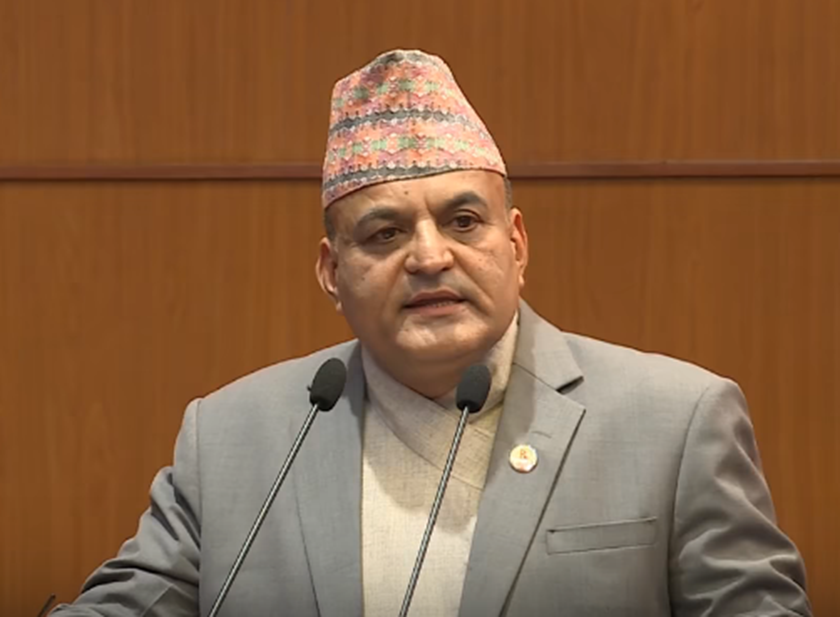Kathmandu. In the current situation, the government is likely to lose Rs 27.5 billion in revenue by licensing the new stock exchange. The government is likely to lose Rs 27.5 billion in revenue by licensing new stocks to the private sector without restructuring the Nepal Stock Exchange, which is currently owned by the government.
At present, the paid-up capital of The Nepal Stock Exchange is Rs 1 billion. Of this, 58.66 percent is invested by the Government of Nepal. Nepal Rastra Bank has 9.51 percent investment while Employees Provident Fund has 10 percent investment. Similarly, Rastriya Banijya Bank has 11.23 percent, Prabhu Bank 5 percent, Laxmi Sunrise Bank 5 percent and others 0.60 percent.
According to nepse’s restructuring plan, the existing paid-up capital of Rs 1 billion will be increased to Rs 3 billion. It has been mentioned that various sectoral participation will be ensured.
Share ownership in NEPSE with such 3 billion capital
Government of Nepal – 19.55 percent
Nepal Rastra Bank – 3.17 percent
Employees Provident Fund – 3.33 percent
Rastriya Banijya Bank – 3.74 percent
Prabhu Bank – 1.67 percent
Laxmi Sunrise Bank – 1.67 percent
General – 30 percent (to be added)
Bank Group – 13.33 percent (added)
Insurance Group – 13.33 percent (added)
Government-owned institutions – 10%
Other –0.10 percent
Government plan on NEPSE restructuring
“The institutional capacity of the Securities Board will be strengthened to protect the interests of the citizens in the capital market,” reads point number 322 of the government’s budget statement for the upcoming fiscal year 2082/830. Institutional capacity will be enhanced by restructuring the Nepal Stock Exchange. ” he said.
The report of the ‘High Level Economic Suggestion Commission’ headed by former Finance Secretary Rameshwor Khanal has stated that the Nepal Stock Exchange should be restructured and its capital should be increased and the private sector should be involved in the shares. That is, the commission has also clearly written that new stocks are not needed and nepse should be restructured. A three-member working group formed to study the Khanal Commission’s report has also approved the suggestion and the meeting of the Council of Ministers held on May 29 has approved it. Revenue Secretary Dinesh Ghimire, then Secretary at the Prime Minister’s Office Chudamani Poudel and then Commerce Secretary Govinda Bahadur Karki were part of the taskforce. The three secretaries have clearly stressed the need to restructure NEPSE instead of the new stock exchange. According to the action plan approved by the Council of Ministers, NEPSE will be restructured within the next one year.
How will the government lose Rs 27.5 billion in revenue by licensing new stock exchanges to the private sector?
Now let’s look at the details.
Nepse, which has a paid-up capital of Rs 1 billion, will be made rs 3 billion. The existing shares of the Government of Nepal, Nepal Rastra Bank, Employees Provident Fund, etc. will be adjusted with the paid-up capital of Rs 3 billion and the share ownership percentage of these institutions will be reduced.
That is, a completely new investor will be sought for 20 million units of shares for the additional 2 billion paid-up capital. These investors will buy shares in bid bid. Two years ago, nepse’s asset liability assessment (DDA) had fixed the book value at Rs 1,375. There is a practice of buying and selling shares at a price up to five times the book value. Even if nepse shares are sold at the book value, they will get Rs 1375 per share. Even if 20 million units of shares are sold at Rs 1,375 per share, the government gets Rs 27.5 billion at a time. According to the practice of the market where shares are bought and sold at five times the book value, then the Government of Nepal can earn more than trillions of rupees at one time.
Prabhu Bank and Laxmi Sunrise Bank had bought shares of Nepal Rastra Bank (NRB) at the rate of Rs 1,300 per share a few years ago. At that time, Rastra Bank had earned Rs 650 million by selling 500,000 units of shares to Prabhu Bank, while Laxmi Sunrise Bank had taken 500,000 units of shares by paying Rs 650 million.
It is alleged that the business houses trying to license the new stock exchange in the market are charging a commission of up to Rs 400 per share. A complaint has been lodged with the Commission for the Investigation of Abuse of Authority (CIAA) alleging a commission game of Rs 5 billion in the licensing process of the new stock exchange.
CpN (Maoist Centre) Chairman Pushpa Kamal Dahal ‘Prachanda’ has been making public statements that the government led by him has collapsed due to this license.
Now the question arises, will the restructuring of NEPSE move forward with an income of Rs 27.5 billion in the government’s account at one time or before that the licensing process of the new stock exchange will proceed to eliminate NEPSE?
Mahesh Baral, joint secretary at the Ministry of Finance, and Binod Kumar Bhattarai, joint secretary at the Law Ministry, are working on the board of directors of the securities board. Executive Director of Nepal Rastra Bank Revati Nepal is also involved in this. Will those involved in the process of issuing licenses of new stocks causing a loss of Rs 27.5 billion to the state be found to have misused the authority? The future will account for its ‘pie pie’.































प्रतिक्रिया दिनुहोस्